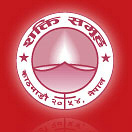Bulletin 1
Bulletin 1 (February 2010)
Professor Diane Richardson, Principal Investigator, Newcastle University, UK
Professor Nina Laurie, Co-Applicant, Newcastle University, UK
Dr Janet Townsend, Co-Applicant Newcastle University, UK
Dr Meena Poudel, Research Associate Newcastle University and IOM, Nepal
This large ESRC project runs from November 2009 to November 2011 and is a collaboration between Newcastle University, the Non Government Organisation (NGO) ‘Shakti Samuha’ and the International Organisation for Migration (IOM) Mission in Nepal. It aims to explore the situation of returnee trafficked women. To date there has been little research on post trafficking livelihoods nor how the issues raised by trafficking intersect with development agendas. A key aspect of this research is to gain knowledge that is grounded in the actual experiences of Nepalese trafficked returnee women themselves. We are interested in how returnee livelihoods intersect with sexuality and citizenship.
Emergent Findings
Nepal is one of the source countries for sexually trafficked women in South Asia. India is a destination as well as a transit route for trafficking Nepali women on to the Middle East and South East Asia. Anti-trafficking advocates argue that NGO awareness-training in the east-central area of Nepal and around that border region is forcing a shift in trafficking flows. Monitoring of the most frequently used crossing points is forcing traffickers to use more difficult routes despite transport challenges. Traffickers are moving women from the South East through the far west region on to India. Geographies of stigma and poverty mean that origins as much as destination can affect how a returnee woman is seen. Until recently, even if women from Sindhulpalchok, an area long associated with trafficking, are migrant workers not working in the ‘sex industry’ they are likely to be read as sexually trafficked if they return home from India or further abroad. Other geographical reference points also act to mark difference between women. Some women use the Nepal-India border to say “I’m not ‘as trafficked’ because I ‘escaped/was rescued’ before I crossed”. This invocation of the border constructs a differentiated version of the binary of “acceptable and unacceptable” femininities and can be important to women who experience a further layer of stigma by association because of their involvement with an anti-trafficking NGO.
Fieldwork
Preparation and liaison work in the UK and Nepal began from November 2009. In the UK, the work concentrated on the formal and ‘grey’ literature available in the UK and Nepal, to build up knowledge. A full team field visit to Kathmandu occurred in February 2010 to liaise further with project partners and conduct a series of meetings and informal interviews with key stakeholders. These included bi-lateral and multi-lateral donors, government officials, the chair of the Fundamental Rights Committee of the Constitutional Assembly (CA), various anti-trafficking NGOs and activist groups focused on sexuality and HIV/AIDS. We also presented the project case for support and our Richardson et al (2009) ‘Sexual trafficking in Nepal: constructing citizenship and livelihoods’ Gender Place and Culture paper at the Gender Studies Centre, Tribhuvan University, Kathmandu.
We will be presenting at the following conference during spring/summer 2010
- Annual conference of the British Sociological Association, Inequalities & Social Justice, 7-9 April 2010, Glasgow Caledonian University
- Annual conference of the Association of American Geographers, Washington, 14-18th April 2010
- Development Studies Association gender and development workshop. University of York, Heslington, York Saturday 5th June 2010-07-24
- Feminist research seminar series, Wageningen University, Netherlands. 20th May 2010.
- Economic and Social Research Council (ESRC) Seminar Series: Activism, Volunteering and Citizenship. Final seminar: biographies of activism and social change. 20th- 21st June 2010, Newcastle University.
- Beyond Citizenship: Feminism and the Transformation on Belonging Conference, Birkbeck, University of London, June 30th – July 2nd, 2010,
Forthcoming Publications
Richardson, D. ‘Sexualities’ Guest editor of special issue of Sociology, October 2010
We have contributed to the following during 2009-10 to date
- Coordinated the United Nations Nepal Country Team’s response to the National Report on Trafficking in Persons published by the National Rapporteur (Dec - Feb)
- Commented on the Child Rights bill (being drafted by UNICEF Nepal) and incorporated aspects of the trafficking of children into the bill (April - May)
- Engaged with Constitutional Assembly (CA) members especially Fundamental Rights Committee members, commenting citizenship relating to trafficked returnees in draft reports) (ongoing)
- Arranged a policy dialogue between female CA members and Shakti Samuha on citizenship (March)
- Contributed to the review process of SAARC convention on trafficking (April)




